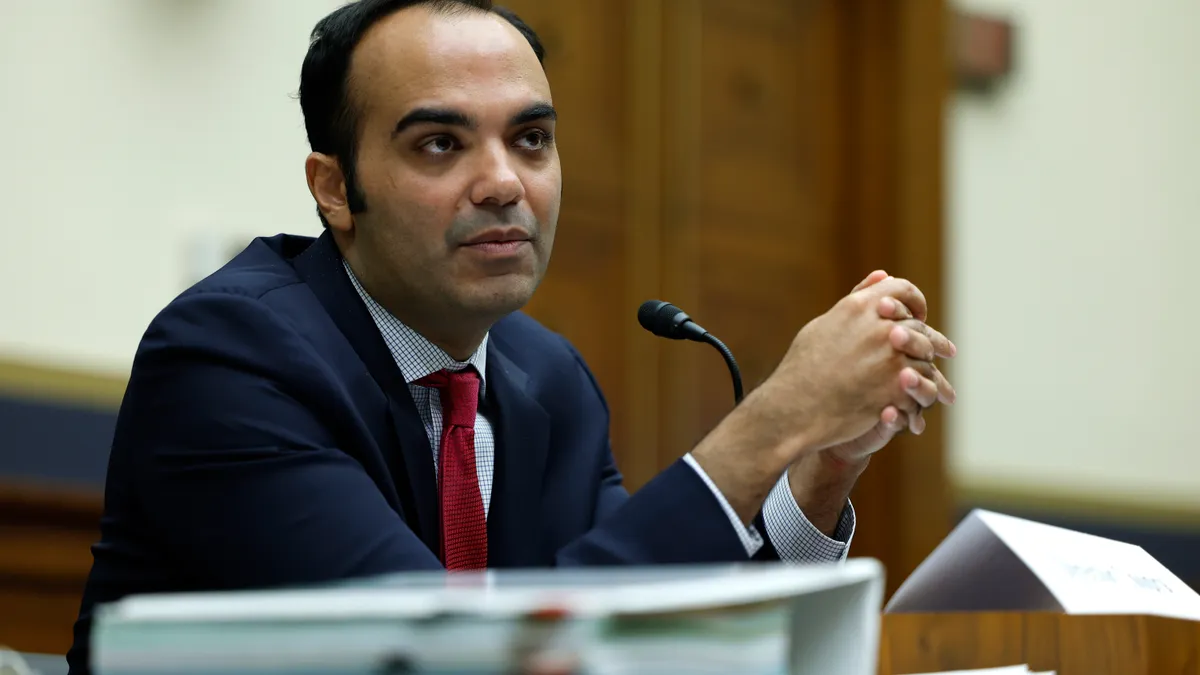The Consumer Financial Protection Bureau overstepped its authority when it directed its examiners to consider discrimination in any financial product a possible form of unfairness covered under congressionally banned "unfair, deceptive or abusive acts or practices,” a federal judge ruled Friday.
The ruling gives trade groups — including the American Bankers Association, Consumer Bankers Association and the U.S. Chamber of Commerce — a win against a CFPB policy change they argued the bureau should have subjected to a comment period.
Judge J. Campbell Barker of the U.S. District Court for the Eastern District of Texas ruled Friday that the Dodd-Frank Act, which created the CFPB, treats discrimination and unfairness as separate concepts. The law doesn’t specify discrimination, so it shouldn’t be inferred as the CFPB’s purview, Barker wrote.
"The CFPB faces a high burden in arguing that Congress conferred a sweeping anti-discrimination authority without defining protected classes or defenses, without using the words 'discrimination' or 'disparate impact,' and while separately giving the agency authority to police 'discrimination' only in specific areas," Barker wrote in an opinion. "The CFPB's claimed authority to prohibit disparate-impact discrimination is something that Congress rarely authorizes. When it does, Congress authorizes disparate-impact liability only in narrow circumstances, with limits that exist to avoid 'serious constitutional questions.’"
Rob Nichols, the ABA’s CEO, said in a statement he is “pleased” with the ruling, which reinforces the CFPB does not have “open-ended and novel power to examine banks for alleged discriminatory conduct.”
“This authority is nowhere to be found in the agency’s mandate from Congress,” Nichols wrote. “We strongly support the fair enforcement of nondiscrimination laws, but the Bureau’s extraordinary expansion of its regulatory reach crossed the line.”
The CFPB is reviewing the decision and considering an appeal, a spokesperson for the bureau told The New York Times, Reuters and American Banker.
“A longstanding and straightforward federal law prohibits unfair acts and practices, stating that financial firms cannot subject consumers to substantial and unavoidable harm,” said the spokesperson, Sam Gilford. “In our view, it is common sense that discrimination can meet that standard. … The CFPB will continue to root out invidious discrimination to protect American families, using any available tool at our disposal while abiding by the court's order.”
In his decision, Barker vacated the policy update the CFPB announced in March 2022. The judge also barred the CFPB from enforcing the update in actions against members of the plaintiff trade groups.
The bureau had not yet filed any enforcement actions under the updated policy, but said in June that it was "looking into potential discriminatory conduct."
The ABA, CBA and Chamber of Commerce, for their part, rebuked the CFPB’s policy update in a white paper in June 2022, and sued the bureau last September, calling the effort “arbitrary” and “capricious.”
“Banks must follow the rules, but federal regulators must as well,” Nichols, of the ABA, said Friday. “Unfortunately, this CFPB has too often chosen to ignore the law and the will of Congress, forcing us to seek relief in court.”
The CFPB argued that the March 2022 policy update was not a formal rule and that the trade groups did not have standing to contest the bureau's instructions to its own examiners.
Barker, a Trump appointee, disagreed. Further, the judge said state laws offer protections from discrimination, and the CFPB’s activities would hamper those.
The trade groups argued, too, that an October 2022 ruling by the 5th U.S. Circuit Court of Appeals invalidates the CFPB's authority altogether.
The CFPB has appealed that decision to the U.S. Supreme Court, which is expected to weigh in next month.
CBA President Lindsey Johnson said Barker’s ruling affirms her organization’s stance that the CFPB “exceeded its statutory authority … by seeking to punish banks for perceived discrimination even without evidence of discriminatory intent.”
“We urge the agency to introduce policy considerations using proper procedure,” she said.



















